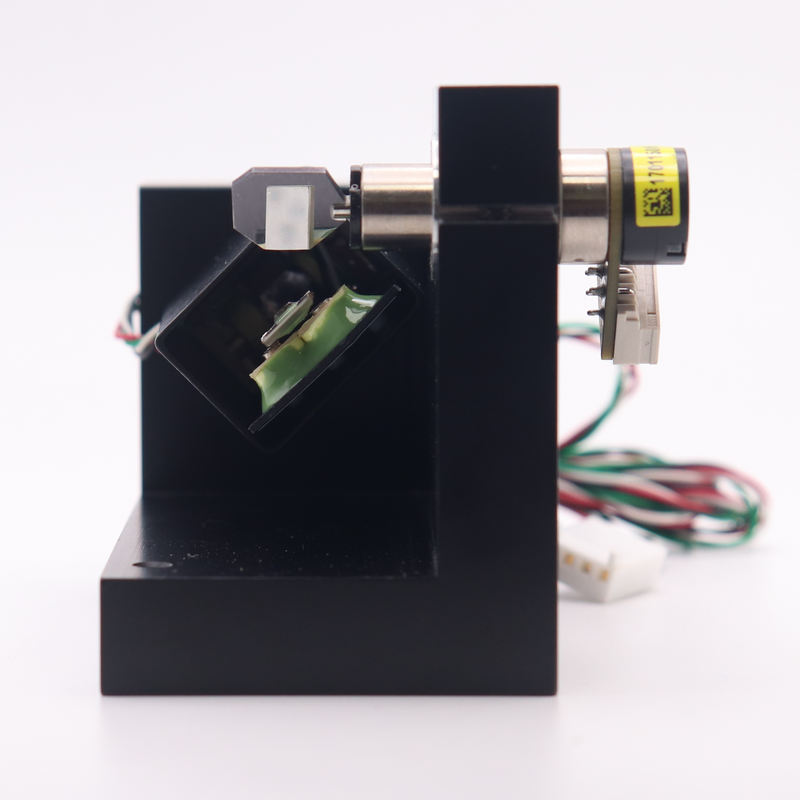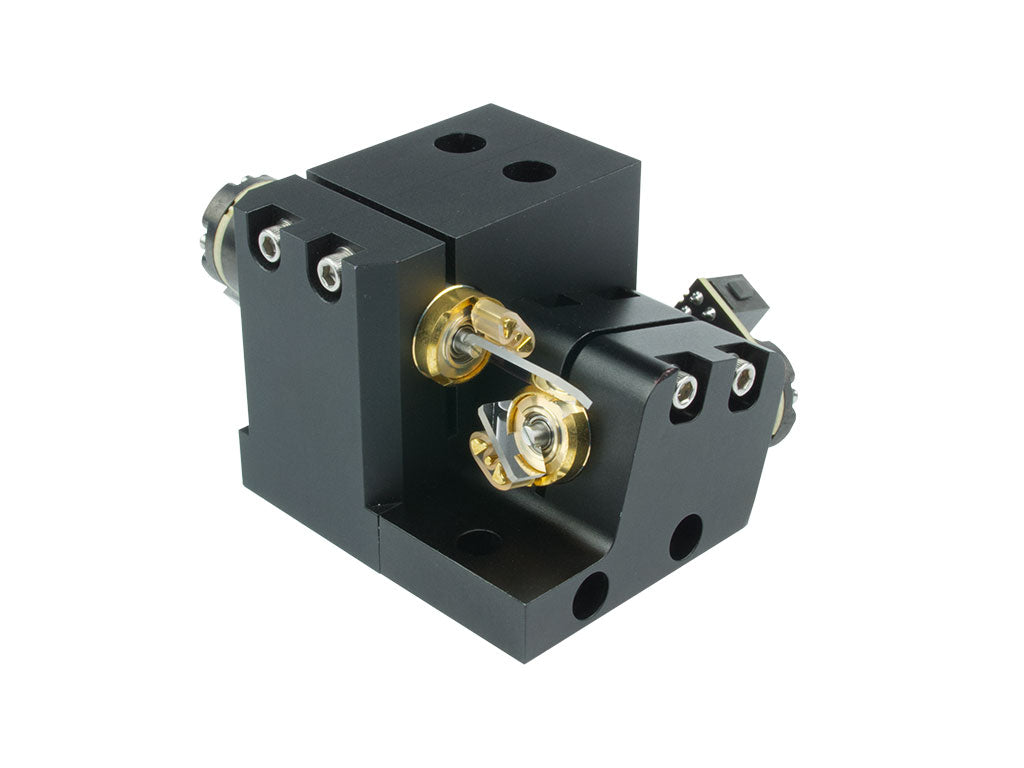Checking Out the Advanced Functions of Modern Galvanometer Scanners in Study
Just How a Galvanometer Scanner Improves Performance in Laser Scanning Technologies
The combination of galvanometer scanners in laser scanning modern technologies represents an essential innovation in accuracy design. By assisting in rapid and exact modifications of laser beam instructions, these tools substantially improve operational performance across different applications, from medical imaging to industrial inscription. The underlying electro-magnetic devices, coupled with innovative responses systems, guarantee real-time control and improved accuracy. As sectors increasingly demand greater efficiency criteria, the question develops: what future developments might even more elevate the abilities of galvanometer scanners in this progressing landscape?
Comprehending Galvanometer Scanners
A galvanometer scanner is a sophisticated device that leverages electro-magnetic concepts to achieve accurate angular activity of mirrors or various other reflective surfaces. These scanners run via the interaction of an electric present and a magnetic area, making it possible for quick and precise positioning. This technology is essential in applications calling for high-speed scanning, such as laser inscription, optical communication, and clinical imaging.

Galvanometer scanners are typically defined by their rapid feedback times and high angular resolution, making them optimal for applications that demand quick activities and accurate positioning. Their integrity and performance make them a crucial element in modern laser scanning technologies, contributing dramatically to developments in numerous areas, consisting of production, health care, and telecommunications.
Device of Laser Light Beam Control

The control system depends on closed-loop responses systems that continuously keep an eye on the beam of light's placement. The signals from optical sensors supply real-time information to the control system, permitting for rapid modifications to maintain accuracy. This is crucial in applications where even minor discrepancies can endanger the quality of the scan or inscribing.
Furthermore, the galvanometer's reaction time is critical; high-speed motors make it possible for swift motions, making certain that the laser beam can rapidly map intricate patterns or perform complex operations. The assimilation of electronic signal handling even more enhances the responsiveness and precision of the galvanometer scanner. Overall, the device of laser beam control with galvanometer scanners exhibits the blend of innovative engineering and modern technology, generating high-performance results in laser scanning applications.
Advantages of Improved Precision
Boosted accuracy in laser scanning technologies provides significant advantages across various applications, from industrial manufacturing to medical treatments. The assimilation of galvanometer scanners permits for highly precise beam positioning, which is critical for tasks needing careful detail. This improved accuracy guarantees that the laser can target specific areas with marginal discrepancy, causing exceptional top quality outcomes.
In commercial contexts, precise laser scanning causes improved product consistency and minimized material waste. Components manufactured with high precision are less most likely to require rework, consequently enhancing productivity and decreasing functional prices. In clinical applications, the precision of laser procedures can significantly affect individual end results. In laser surgical treatment, exact targeting decreases damage to bordering cells, leading to quicker recuperation times and less problems.
Furthermore, boosted accuracy assists in sophisticated applications such as 3D imaging and microfabrication, where even minute errors can cause significant mistakes. By offering repeatable and dependable laser positioning, galvanometer scanners contribute to the overall efficiency and performance of laser systems. In summary, the benefits of improved accuracy not just enhance operational performance yet also boost the criteria of high quality and safety and security in various sectors.
Applications in Numerous Industries
The convenience of galvanometer scanners in laser scanning technologies prolongs across multiple industries, each taking advantage of the precision they give. published here In the clinical field, these scanners are crucial in applications such as laser surgical treatment and imaging, permitting highly accurate targeting of tissues while minimizing damages to surrounding locations - galvanometer scanner. Their quick action and fine resolution are critical in creating top notch results
In the manufacturing market, galvanometer scanners enhance processes like laser inscription and cutting. Their ability to swiftly guide laser beams onto surfaces makes it possible for effective manufacturing lines, enhancing speed and precision in producing detailed layouts or components.
The auto industry also profits from galvanometer technology for quality assurance and inspections (galvanometer scanner). By using high-speed scanning, suppliers can discover issues in materials or assemblies, ensuring that products meet rigid criteria
Furthermore, in the amusement industry, galvanometer scanners are employed in laser light shows and screens, supplying dynamic aesthetic experiences with precise control over laser motions.
Future Fads in Laser Scanning
Arising technologies are positioned to revolutionize the landscape of laser scanning, with galvanometer scanners at the leading edge of this improvement. As sectors increasingly require accuracy and efficiency, the evolution of galvanometer innovation will certainly drive significant improvements in laser scanning applications.
Future fads show a growing combination of artificial intelligence and artificial intelligence formulas, which will boost information refining capacities and automate decision-making in real-time. This harmony will permit a lot more advanced analysis of checked information, causing boosted precision in applications such as 3D modeling and autonomous navigation.
Furthermore, the miniaturization of parts and the advancement of read more sophisticated materials will add to lighter, more portable laser scanning systems. This transportability will certainly increase Discover More the reach of laser scanning innovations into previously inaccessible atmospheres, such as remote surface and detailed building areas.
The surge of augmented reality (AR) and digital truth (VR) applications will certainly also form the future of laser scanning. By integrating galvanometer scanners with AR and virtual reality, individuals will certainly profit from immersive experiences that boost visualization and task preparation.
Conclusion
To conclude, galvanometer scanners play a critical role in maximizing laser scanning innovations through their accurate control of beam instructions and rapid angular adjustments. The integration of advanced responses systems and optical sensing units substantially boosts operational rate and accuracy, leading to enhanced end results in applications such as laser inscription and clinical imaging. As markets increasingly adopt these modern technologies, the ongoing innovations in galvanometer scanner styles are expected to more elevate performance criteria and widen application opportunities.
The integration of galvanometer scanners in laser scanning modern technologies stands for a critical advancement in accuracy design. Generally, the mechanism of laser beam of light control through galvanometer scanners exemplifies the blend of advanced design and technology, yielding high-performance results in laser scanning applications.
By providing trusted and repeatable laser positioning, galvanometer scanners contribute to the overall effectiveness and performance of laser systems.The adaptability of galvanometer scanners in laser scanning technologies expands throughout several sectors, each profiting from the precision they provide.In verdict, galvanometer scanners play an essential role in maximizing laser scanning modern technologies with their precise control of beam of light direction and quick angular changes.